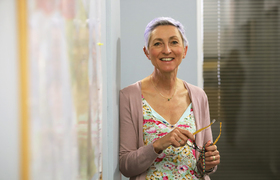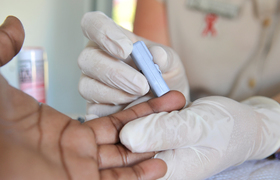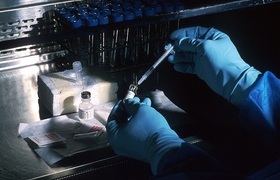Clinical trial halted, but search for HIV vaccine continues
04 February 2020 | Story Helen Swingler. Read time 7 min.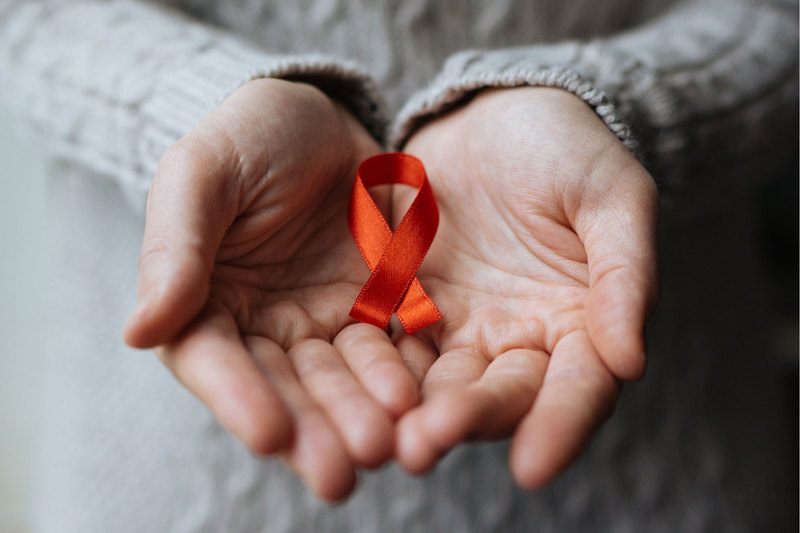
The early abandonment of HIV vaccine study HVTN 702 (also known as Uhambo) in South Africa for failing to prevent infections is a huge setback in the quest to find an HIV vaccine. However, this will not deter scientists, said the University of Cape Town’s (UCT) Professor Linda-Gail Bekker.
Bekker is the occupant of the HIV Vaccine Trials Network (HVTN) 702 Protocol Co-chair, deputy director of the Desmond Tutu HIV Centre at UCT’s Institute of Infectious Disease and Molecular Medicine (IDM) and immediate past president of the International AIDS Society, which hosts the Global HIV Vaccine Enterprise.
The trial was due to run until July 2022. The study was sponsored by the National Institute of Allergy and Infectious Diseases (NIAID), part of the National Institutes of Health, and co-funded by the Bill & Melinda Gates Foundation and the South African Medial Research Council (SAMRC).
“The extraordinary effort that went into recruiting and implementing a trial of this size and complexity, and to the very high standard we have seen to date, makes me proud to be a South African,” Bekker said in an announcement. “But these incidence rates should also spur us on as South Africans to regroup to find new solutions to our HIV epidemic as soon as possible.”
The vaccine efficacy study began in October 2016, enrolling 5 407 sexually active, HIV-uninfected men and women between 18 and 35 years of age at 14 sites across South Africa, which has one of the most severe HIV epidemics in the world (7.7 million of the world’s 37.9 million HIV-infected people).
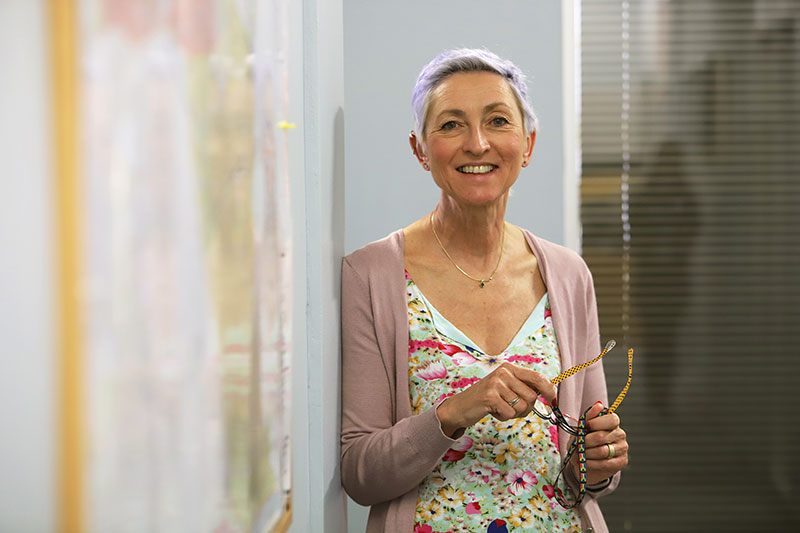
HVTN 702 tested a prime-boost regimen similar to the one that had shown modest efficacy in the RV144 trial conducted in Thailand and had been adapted to the type of HIV most common in Southern Africa.
Study participants received six injections over 18 months. Researchers randomly assigned half of the participants to receive a pair of HIV vaccines used in a one-two punch called a prime-boost. The other half received placebo shots.
“We will continue with our HIV vaccine programmes and other promising avenues for preventing HIV – both in South Africa and around the world.”
Despite the huge disappointment, Professor Glenda Gray, president and chief executive of the SAMRC and occupant of the HVTN 702 Protocol Chair, said, “The people of South Africa have made history by answering this important scientific question. Sadly, we wish the answer was different. We will continue with our HIV vaccine programmes and other promising avenues for preventing HIV – both in South Africa and around the world.”
Sneak peak
On Thursday, 23 January, an independent monitoring board that takes scheduled “sneak peaks” at the trial data to evaluate safety and efficacy told Gray and the other study leaders that it was “futile” to continue.
There were 129 infections in the vaccinated group and 123 in those who received the placebo. According to an IAS statement, although the regimen did not prevent HIV infections, the independent Data and Safety Monitoring Board (DSMB) did not express any concerns about safety.
An IAS release said, “The safety of HVTN 702 study participants was closely monitored throughout the trial, and participants were offered the local standard of care for preventing HIV, including access to oral pre-exposure prophylaxis.”
The DSMB praised the HVTN team on their efforts in conducting the trial and thanked those that participated. NIAID and the HVTN 702 study team are working on a thorough analysis of the study data in order to guide future vaccine developments. The findings will be disseminated to the public as soon as possible.
Follow-up study
The DSMB’s recommendation is to stop further vaccinations but keep participants in the study for follow-ups.
According to the IAS, three other studies are being conducted, investigating various prime-boost regimens. The front runner is a vaccine made by Janssen Vaccines & Prevention BV. The company is conducting a study in 2 600 adult women in South Africa and other sub-Saharan Africa countries.
Other parallel vaccine studies involve participants in Switzerland, the United States, Peru and Brazil.
Questions answered
The IDM’s Professor Graeme Meintjes, occupant of the Department of Science and Technology / National Research Foundation SARChI Chair in Poverty-Related Infections, said that while the outcome was a huge disappointment for the participants, research teams and scientists knew from the start that this was one of the possible outcomes as the trial had set out to answer the question of whether the vaccine was effective and safe.
“We have definitively answered these questions in this extraordinarily large and complex clinical trial that has been conducted to the highest scientific standards. I would particularly like to acknowledge all the participants at our site in Khayelitsha and across the country,” he said.
“While this particular vaccine will not be taken forward, there are many important lessons that will be learnt from the information and samples that have been collected from them in this trial that will inform future efforts to prevent HIV with a biomedical intervention.”
“The path ahead is clear: we must, and will, redouble our efforts to tackle the scourge of HIV or AIDS through world-class research.”
UCT’s IDM director Professor Valerie Mizrahi said she was particularly proud of the study team.
“[They] must be commended on the exemplary way the trial has been conducted, and the research sites and study participants acknowledged for their unwavering commitment to finding new ways to control the HIV epidemic through scientific research,” she said.
“I especially wish to acknowledge the [occupant of the] HVTN 702 Protocol Co-chair, Professor Linda-Gail Bekker, and the outstanding team of researchers at UCT for their key contributions to this and other studies. The path ahead is clear: we must, and will, redouble our efforts to tackle the scourge of HIV or AIDS through world-class research.
“The magnitude of the epidemic that is ravaging our communities demands nothing less.”
 This work is licensed under a Creative Commons Attribution-NoDerivatives 4.0 International License.
This work is licensed under a Creative Commons Attribution-NoDerivatives 4.0 International License.
Please view the republishing articles page for more information.







